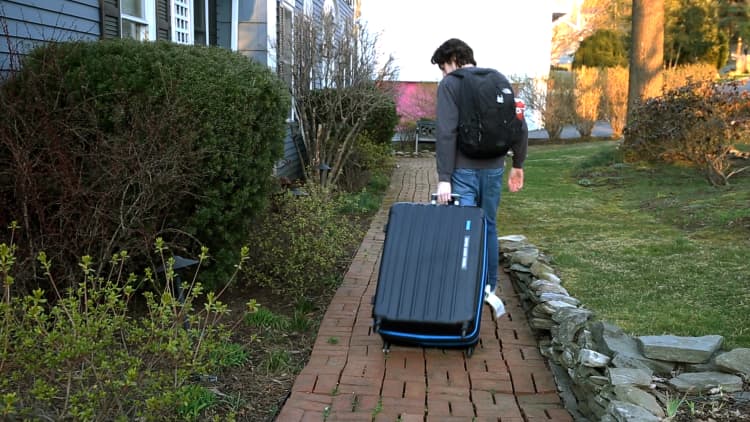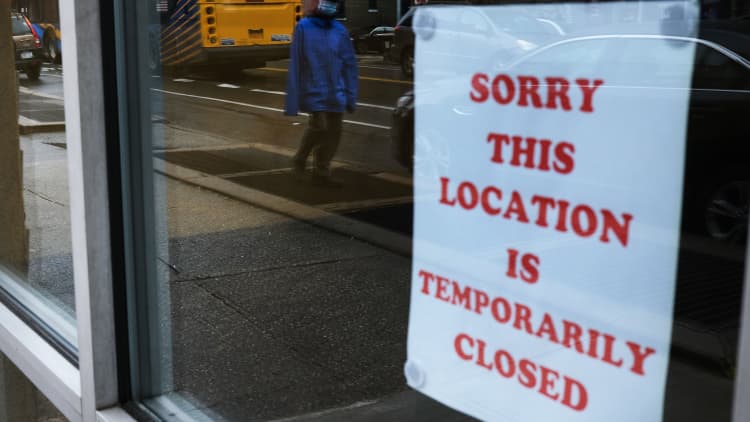Since early March, over 36 million Americans have filed for unemployment due to the coronavirus crisis, marking the biggest spike in unemployment in U.S. history.
In response to these claims, states have paid a record $48 billion in unemployment benefits to people out of work but several recent studies have found that this total could have been much higher.
According to an analysis by One Fair Wage, a nonprofit organization that advocates for restaurant workers, only 56% of those who have applied for unemployment insurance are receiving benefits, meaning about 44% have been denied or are still waiting.
To be sure, states are dealing with an unprecedented volume of unemployment applicants, causing delays. Additionally, it is possible that some people have filed incorrectly, but advocates and experts are increasingly calling attention to workers who are being left out.
"Using data from the Bureau of Labor Statistics, we estimate that more than half of states have processed and paid less than 60% of total submitted unemployment claims," says Saru Jayaraman, president of One Fair Wage, in a statement. "And we know that the situation is even worse for low-wage and tipped service workers, who have earned a subminimum wage and in some cases cash tips. These workers are often being told they didn't earn enough to qualify for unemployment, even when they've worked full-time, and are rejected at higher rates."
Jayaraman claims that many restaurant workers are being denied benefits because their wages do not meet the earnings thresholds, a minimum amount that workers must earn in order to be eligible for unemployment benefits. Earning thresholds are are typically quite low but vary from state to state.
She asserts the issue of workers not earning enough to qualify for unemployment insurance is happening in states like Michigan where the minimum case wage for tipped workers is $3.67 per hour and the earnings threshold is $20,742. Employers are supposed to pay tipped workers $9.65 per hour if their tips do not make up for the full difference.
A person earning $9.65 per hour working 40 hours per week for 52 weeks would make roughly $20,072 per year.
Other organizations have reported on the gap between who needs unemployment and who's receiving it.
According to research from the Economic Policy Institute released on April 28th, for every 10 people who said they successfully filed for unemployment benefits during the previous four weeks, three to four additional people tried to apply but could not get through the system to make a claim.
EPI researchers also found that two additional people did not try to apply because it was too difficult to do so.
"About half of potential UI applicants are actually receiving benefits," reads EPI's report.
Research from the Brookings Institution indicates that the $48 billion in unemployment spending only offset roughly half of wage loss among workers in April, not because the recent unemployment legislation did not call for more support, but because of delays in distributing unemployment and because many unemployed workers have not been able to successfully file for unemployment.
"There were 23 million people reported as unemployed in the Bureau of Labor Statistics' Employment Situation for April 2020. If those people received average UI payments for the full month, the total of UI payments would have been over $90 billion, roughly double what was actually paid out," reads Brookings' report.
"A lot of money is going out," Jay Shambaugh, director of the Hamilton Project, an economic initiative within the left-leaning think tank, and one of the authors of the report tells CNBC. "But it's nowhere near how much could be going out."
Like this story? Subscribe to CNBC Make It on YouTube!
Don't miss:




